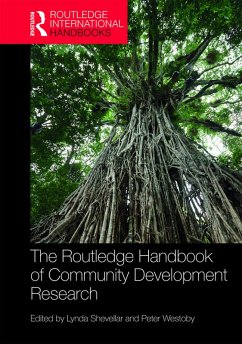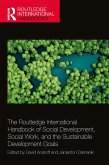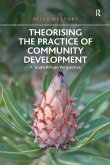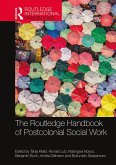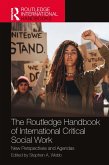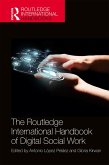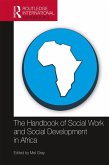The Routledge Handbook of Community Development Research (eBook, PDF)
Redaktion: Shevellar, Lynda; Westoby, Peter
45,95 €
45,95 €
inkl. MwSt.
Sofort per Download lieferbar

23 °P sammeln
45,95 €
Als Download kaufen

45,95 €
inkl. MwSt.
Sofort per Download lieferbar

23 °P sammeln
Jetzt verschenken
Alle Infos zum eBook verschenken
45,95 €
inkl. MwSt.
Sofort per Download lieferbar
Alle Infos zum eBook verschenken

23 °P sammeln
The Routledge Handbook of Community Development Research (eBook, PDF)
Redaktion: Shevellar, Lynda; Westoby, Peter
- Format: PDF
- Merkliste
- Auf die Merkliste
- Bewerten Bewerten
- Teilen
- Produkt teilen
- Produkterinnerung
- Produkterinnerung

Bitte loggen Sie sich zunächst in Ihr Kundenkonto ein oder registrieren Sie sich bei
bücher.de, um das eBook-Abo tolino select nutzen zu können.
Hier können Sie sich einloggen
Hier können Sie sich einloggen
Sie sind bereits eingeloggt. Klicken Sie auf 2. tolino select Abo, um fortzufahren.

Bitte loggen Sie sich zunächst in Ihr Kundenkonto ein oder registrieren Sie sich bei bücher.de, um das eBook-Abo tolino select nutzen zu können.
This book provides scholars, students and activists with a comprehensive and authoritative state-of-the-art review of the current research in community development. Each chapter develops a debate in relation to seven key themes, including, but not limited to, forced displacement, domestic violence, security and climate change.
- Geräte: PC
- mit Kopierschutz
- eBook Hilfe
Andere Kunden interessierten sich auch für
![The Routledge International Handbook of Social Development, Social Work, and the Sustainable Development Goals (eBook, PDF) The Routledge International Handbook of Social Development, Social Work, and the Sustainable Development Goals (eBook, PDF)]() The Routledge International Handbook of Social Development, Social Work, and the Sustainable Development Goals (eBook, PDF)46,95 €
The Routledge International Handbook of Social Development, Social Work, and the Sustainable Development Goals (eBook, PDF)46,95 €![Theorising the Practice of Community Development (eBook, PDF) Theorising the Practice of Community Development (eBook, PDF)]() Peter WestobyTheorising the Practice of Community Development (eBook, PDF)51,95 €
Peter WestobyTheorising the Practice of Community Development (eBook, PDF)51,95 €![The Routledge Handbook of Postcolonial Social Work (eBook, PDF) The Routledge Handbook of Postcolonial Social Work (eBook, PDF)]() The Routledge Handbook of Postcolonial Social Work (eBook, PDF)45,95 €
The Routledge Handbook of Postcolonial Social Work (eBook, PDF)45,95 €![The Routledge Handbook of International Critical Social Work (eBook, PDF) The Routledge Handbook of International Critical Social Work (eBook, PDF)]() The Routledge Handbook of International Critical Social Work (eBook, PDF)47,95 €
The Routledge Handbook of International Critical Social Work (eBook, PDF)47,95 €![The Routledge Handbook of Critical Social Work (eBook, PDF) The Routledge Handbook of Critical Social Work (eBook, PDF)]() The Routledge Handbook of Critical Social Work (eBook, PDF)50,95 €
The Routledge Handbook of Critical Social Work (eBook, PDF)50,95 €![The Routledge International Handbook of Digital Social Work (eBook, PDF) The Routledge International Handbook of Digital Social Work (eBook, PDF)]() The Routledge International Handbook of Digital Social Work (eBook, PDF)46,95 €
The Routledge International Handbook of Digital Social Work (eBook, PDF)46,95 €![The Handbook of Social Work and Social Development in Africa (eBook, PDF) The Handbook of Social Work and Social Development in Africa (eBook, PDF)]() The Handbook of Social Work and Social Development in Africa (eBook, PDF)48,95 €
The Handbook of Social Work and Social Development in Africa (eBook, PDF)48,95 €-
-
-
This book provides scholars, students and activists with a comprehensive and authoritative state-of-the-art review of the current research in community development. Each chapter develops a debate in relation to seven key themes, including, but not limited to, forced displacement, domestic violence, security and climate change.
Dieser Download kann aus rechtlichen Gründen nur mit Rechnungsadresse in A, B, BG, CY, CZ, D, DK, EW, E, FIN, F, GR, HR, H, IRL, I, LT, L, LR, M, NL, PL, P, R, S, SLO, SK ausgeliefert werden.
Produktdetails
- Produktdetails
- Verlag: Taylor & Francis eBooks
- Seitenzahl: 316
- Erscheinungstermin: 19. Februar 2018
- Englisch
- ISBN-13: 9781317043874
- Artikelnr.: 56840769
- Verlag: Taylor & Francis eBooks
- Seitenzahl: 316
- Erscheinungstermin: 19. Februar 2018
- Englisch
- ISBN-13: 9781317043874
- Artikelnr.: 56840769
- Herstellerkennzeichnung Die Herstellerinformationen sind derzeit nicht verfügbar.
Lynda Shevellar is influenced by 25 years of experience and study in community development, the disability sector, education, and psychology. She has worked in government and the community sector and is currently a lecturer in Community Development, within the School of Social Science at The University of Queensland, Australia. Lynda's current research focuses upon supporting people with disabilities and mental health challenges to develop a deeper sense of community belonging. Peter Westoby is an Associate Professor in Social Science and Community Development at Queensland University of Technology, Australia; a Visiting Professor at the Centre for Development Support, University of Free State, South Africa; and a Director with Community Praxis Cooperative. Peter has over 30 years of experience in practice in places such as South Africa, Uganda, Vanuatu, Papua New Guinea, the Philippines and Australia. He teaches and researches on community development theory and practice, dialogue studies and forced migration studies. Peter is passionate about reading, good coffee, hanging out at his local AVID reader bookshop, bushwalking and travelling.
List of figures; List of tables; List of contributors; Foreword;
Acknowledgements; Introduction; Chapter 1: Wicked problems and community
development - an introductory essay (Lynda Shevellar & Peter Westoby);
Part I. Forced Displacement.; Chapter 2: Disruptive rights-based community
development in protracted urban refugee contexts: the politics of legal
recognition (Linda Bartolomei, Kristy Ward & Marcela Garrett); Chapter 3:
'They'd just flown away': reflections on shifting gender norms in the
context of engagement with asylum seekers and refugees through community
music; (Caroline Lenette, Brian Procopis & Paola Caballero); Chapter 4:
Underestimating legacy: Lessons learned from mining-caused displacement and
resettlement (Rebekah Ramsay & Laura Simpson Reeves); Part II. Family,
Gender And Child Related Violence.; Chapter 5: Critical reflections on
state-driven support for vulnerable children and orphans in South Africa
(Lochner Marais, Carla Sharp, Motsaatbebe Serekoane, Donald Skinner, Jan
Cloete, Kholisa Rani, Michelle Pappin & Molefi Lenka); Chapter 6: Community
based strategies to combat child trafficking in Indonesia (Harriot
Beazley); Chapter 7: Preventing violence against women: The development and
evaluation of a CALD community family violence project (Deborah Western &
Claire Varley); Part III. Indigenous Marginalisation; Chapter 8: Storying
Unarmed Insurgencies: collective narrative methods for researching civil
resistance (Jason MacLeod); Chapter 9: Singing on country and singing for
country': music in work with Australian Aboriginal communities (Dave
Palmer); Chapter 10: Complicating Dynamics: Adapting the Sustainable
Livelihoods Framework to a Remote Indigenous Context in Australia (Mark
Moran, Laura Simpson Reeves & Alyson Wright); Chapter 11: Martu and Policy
Makers: Energising an Experimentalist Approach (Ann Ingamells & Peter
Johnson); Chapter 12: Enhancing Aboriginal Child Welfare Through
Multi-Sector Community Collaboration (Judy Gillespie); Part IV. Food And
Climate; Chapter 13: Stories of climate change and mobility from around the
world: Institutional challenges and implications for community development
(Sarah Henly-Shepard, Karen E McNamara and Robin Bronen); Chapter 14: Food
Sovereignty and Community Economies: A Spanish case study (Rhyall Gordon);
Chapter 15: Community Gardens for Social and Food Justice: The Case of
Urban Agriculture in Australian Cities (Alec Thornton, Kristen Lyons &
Scott Sharpe); Part V. Survival Development; Chapter 16: The place of
schools in building community cohesion and resilience: Lessons from a
disaster context (Carol Mutch); Chapter 17. From 'Dilemmatic Space' Towards
Ecological Practice: Community Development in Disaster Recovery in
Queensland, Australia (Peter Westoby & Lynda Shevellar); Chapter 18:
Hurricanes, Oil, and Rising Water: The role and work of community
development in coastal Louisiana in the intersection of disasters,
recovery, and planning for the future (Holly Scheib); Conclusion; Chapter
19: What have we learned? A concluding essay on wicked problems, research
and the contributions of community development (Peter Westoby I Lynda
Shevellar); Index
Acknowledgements; Introduction; Chapter 1: Wicked problems and community
development - an introductory essay (Lynda Shevellar & Peter Westoby);
Part I. Forced Displacement.; Chapter 2: Disruptive rights-based community
development in protracted urban refugee contexts: the politics of legal
recognition (Linda Bartolomei, Kristy Ward & Marcela Garrett); Chapter 3:
'They'd just flown away': reflections on shifting gender norms in the
context of engagement with asylum seekers and refugees through community
music; (Caroline Lenette, Brian Procopis & Paola Caballero); Chapter 4:
Underestimating legacy: Lessons learned from mining-caused displacement and
resettlement (Rebekah Ramsay & Laura Simpson Reeves); Part II. Family,
Gender And Child Related Violence.; Chapter 5: Critical reflections on
state-driven support for vulnerable children and orphans in South Africa
(Lochner Marais, Carla Sharp, Motsaatbebe Serekoane, Donald Skinner, Jan
Cloete, Kholisa Rani, Michelle Pappin & Molefi Lenka); Chapter 6: Community
based strategies to combat child trafficking in Indonesia (Harriot
Beazley); Chapter 7: Preventing violence against women: The development and
evaluation of a CALD community family violence project (Deborah Western &
Claire Varley); Part III. Indigenous Marginalisation; Chapter 8: Storying
Unarmed Insurgencies: collective narrative methods for researching civil
resistance (Jason MacLeod); Chapter 9: Singing on country and singing for
country': music in work with Australian Aboriginal communities (Dave
Palmer); Chapter 10: Complicating Dynamics: Adapting the Sustainable
Livelihoods Framework to a Remote Indigenous Context in Australia (Mark
Moran, Laura Simpson Reeves & Alyson Wright); Chapter 11: Martu and Policy
Makers: Energising an Experimentalist Approach (Ann Ingamells & Peter
Johnson); Chapter 12: Enhancing Aboriginal Child Welfare Through
Multi-Sector Community Collaboration (Judy Gillespie); Part IV. Food And
Climate; Chapter 13: Stories of climate change and mobility from around the
world: Institutional challenges and implications for community development
(Sarah Henly-Shepard, Karen E McNamara and Robin Bronen); Chapter 14: Food
Sovereignty and Community Economies: A Spanish case study (Rhyall Gordon);
Chapter 15: Community Gardens for Social and Food Justice: The Case of
Urban Agriculture in Australian Cities (Alec Thornton, Kristen Lyons &
Scott Sharpe); Part V. Survival Development; Chapter 16: The place of
schools in building community cohesion and resilience: Lessons from a
disaster context (Carol Mutch); Chapter 17. From 'Dilemmatic Space' Towards
Ecological Practice: Community Development in Disaster Recovery in
Queensland, Australia (Peter Westoby & Lynda Shevellar); Chapter 18:
Hurricanes, Oil, and Rising Water: The role and work of community
development in coastal Louisiana in the intersection of disasters,
recovery, and planning for the future (Holly Scheib); Conclusion; Chapter
19: What have we learned? A concluding essay on wicked problems, research
and the contributions of community development (Peter Westoby I Lynda
Shevellar); Index
List of figures; List of tables; List of contributors; Foreword;
Acknowledgements; Introduction; Chapter 1: Wicked problems and community
development - an introductory essay (Lynda Shevellar & Peter Westoby);
Part I. Forced Displacement.; Chapter 2: Disruptive rights-based community
development in protracted urban refugee contexts: the politics of legal
recognition (Linda Bartolomei, Kristy Ward & Marcela Garrett); Chapter 3:
'They'd just flown away': reflections on shifting gender norms in the
context of engagement with asylum seekers and refugees through community
music; (Caroline Lenette, Brian Procopis & Paola Caballero); Chapter 4:
Underestimating legacy: Lessons learned from mining-caused displacement and
resettlement (Rebekah Ramsay & Laura Simpson Reeves); Part II. Family,
Gender And Child Related Violence.; Chapter 5: Critical reflections on
state-driven support for vulnerable children and orphans in South Africa
(Lochner Marais, Carla Sharp, Motsaatbebe Serekoane, Donald Skinner, Jan
Cloete, Kholisa Rani, Michelle Pappin & Molefi Lenka); Chapter 6: Community
based strategies to combat child trafficking in Indonesia (Harriot
Beazley); Chapter 7: Preventing violence against women: The development and
evaluation of a CALD community family violence project (Deborah Western &
Claire Varley); Part III. Indigenous Marginalisation; Chapter 8: Storying
Unarmed Insurgencies: collective narrative methods for researching civil
resistance (Jason MacLeod); Chapter 9: Singing on country and singing for
country': music in work with Australian Aboriginal communities (Dave
Palmer); Chapter 10: Complicating Dynamics: Adapting the Sustainable
Livelihoods Framework to a Remote Indigenous Context in Australia (Mark
Moran, Laura Simpson Reeves & Alyson Wright); Chapter 11: Martu and Policy
Makers: Energising an Experimentalist Approach (Ann Ingamells & Peter
Johnson); Chapter 12: Enhancing Aboriginal Child Welfare Through
Multi-Sector Community Collaboration (Judy Gillespie); Part IV. Food And
Climate; Chapter 13: Stories of climate change and mobility from around the
world: Institutional challenges and implications for community development
(Sarah Henly-Shepard, Karen E McNamara and Robin Bronen); Chapter 14: Food
Sovereignty and Community Economies: A Spanish case study (Rhyall Gordon);
Chapter 15: Community Gardens for Social and Food Justice: The Case of
Urban Agriculture in Australian Cities (Alec Thornton, Kristen Lyons &
Scott Sharpe); Part V. Survival Development; Chapter 16: The place of
schools in building community cohesion and resilience: Lessons from a
disaster context (Carol Mutch); Chapter 17. From 'Dilemmatic Space' Towards
Ecological Practice: Community Development in Disaster Recovery in
Queensland, Australia (Peter Westoby & Lynda Shevellar); Chapter 18:
Hurricanes, Oil, and Rising Water: The role and work of community
development in coastal Louisiana in the intersection of disasters,
recovery, and planning for the future (Holly Scheib); Conclusion; Chapter
19: What have we learned? A concluding essay on wicked problems, research
and the contributions of community development (Peter Westoby I Lynda
Shevellar); Index
Acknowledgements; Introduction; Chapter 1: Wicked problems and community
development - an introductory essay (Lynda Shevellar & Peter Westoby);
Part I. Forced Displacement.; Chapter 2: Disruptive rights-based community
development in protracted urban refugee contexts: the politics of legal
recognition (Linda Bartolomei, Kristy Ward & Marcela Garrett); Chapter 3:
'They'd just flown away': reflections on shifting gender norms in the
context of engagement with asylum seekers and refugees through community
music; (Caroline Lenette, Brian Procopis & Paola Caballero); Chapter 4:
Underestimating legacy: Lessons learned from mining-caused displacement and
resettlement (Rebekah Ramsay & Laura Simpson Reeves); Part II. Family,
Gender And Child Related Violence.; Chapter 5: Critical reflections on
state-driven support for vulnerable children and orphans in South Africa
(Lochner Marais, Carla Sharp, Motsaatbebe Serekoane, Donald Skinner, Jan
Cloete, Kholisa Rani, Michelle Pappin & Molefi Lenka); Chapter 6: Community
based strategies to combat child trafficking in Indonesia (Harriot
Beazley); Chapter 7: Preventing violence against women: The development and
evaluation of a CALD community family violence project (Deborah Western &
Claire Varley); Part III. Indigenous Marginalisation; Chapter 8: Storying
Unarmed Insurgencies: collective narrative methods for researching civil
resistance (Jason MacLeod); Chapter 9: Singing on country and singing for
country': music in work with Australian Aboriginal communities (Dave
Palmer); Chapter 10: Complicating Dynamics: Adapting the Sustainable
Livelihoods Framework to a Remote Indigenous Context in Australia (Mark
Moran, Laura Simpson Reeves & Alyson Wright); Chapter 11: Martu and Policy
Makers: Energising an Experimentalist Approach (Ann Ingamells & Peter
Johnson); Chapter 12: Enhancing Aboriginal Child Welfare Through
Multi-Sector Community Collaboration (Judy Gillespie); Part IV. Food And
Climate; Chapter 13: Stories of climate change and mobility from around the
world: Institutional challenges and implications for community development
(Sarah Henly-Shepard, Karen E McNamara and Robin Bronen); Chapter 14: Food
Sovereignty and Community Economies: A Spanish case study (Rhyall Gordon);
Chapter 15: Community Gardens for Social and Food Justice: The Case of
Urban Agriculture in Australian Cities (Alec Thornton, Kristen Lyons &
Scott Sharpe); Part V. Survival Development; Chapter 16: The place of
schools in building community cohesion and resilience: Lessons from a
disaster context (Carol Mutch); Chapter 17. From 'Dilemmatic Space' Towards
Ecological Practice: Community Development in Disaster Recovery in
Queensland, Australia (Peter Westoby & Lynda Shevellar); Chapter 18:
Hurricanes, Oil, and Rising Water: The role and work of community
development in coastal Louisiana in the intersection of disasters,
recovery, and planning for the future (Holly Scheib); Conclusion; Chapter
19: What have we learned? A concluding essay on wicked problems, research
and the contributions of community development (Peter Westoby I Lynda
Shevellar); Index
